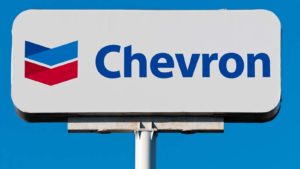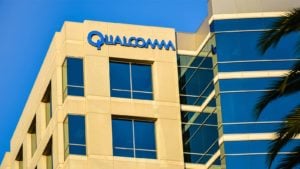July may be an excellent time to purchase several of the best S&P 500 stocks. Tighter monetary policy from the Federal Reserve (Fed) combined with high inflation and ongoing supply chain issues hurt investors through the end of the second quarter. Yet, a number of high-quality S&P 500 stocks currently offer a compelling buying opportunity for investors with a long-term mindset.
The S&P 500 Index ended its worst first half of the year since 1970. On Jun. 13, the index set foot in bear territory after plunging more than 22% from its peak value set in early January.
The index is currently down around 17% year-to-date (YTD). Defensive segments within the benchmark index, such as consumer staples and utilities, have held up relatively well during the selloff. In addition, energy names were winners. However, consumer discretionary names, high-growth shares, technology stocks and many real estate investment trusts (REITs) delivered particularly weak performances.
Against this backdrop, here are seven of the best S&P 500 stocks to buy now:
| Ticker | Company | Price |
| ALGN | Align Technology, Inc. | $244.65 |
| CVX | Chevron Corporation | $134.10 |
| XOM | Exxon Mobil Corporation | $81.92 |
| JNJ | Johnson & Johnson | $174.79 |
| MA | Master Incorporated | $324.34 |
| QCOM | Qualcomm Incorporated | $138.06 |
| UPS | United Parcel Service, Inc. | $175.84 |
Best S&P 500 Stocks: Align Technology (ALGN)

- 52-week range: $225.86 – $737.45
Align Technology (NASDAQ:ALGN) is a medical device company well-known for its Invisalign system, representing an alternative to traditional braces to treat a wide range of malocclusions in the mouth. The company also produces intraoral scanners and computer-aided manufacture digital services to help customize these liners.
The aligner specialist announced first quarter (Q1) metrics on Apr. 27. Revenue increased 9% year-over-year (YOY) to $973 million. Adjusted earnings came in at $2.13 per diluted share, down from $2.49 in the prior-year period. Cash and equivalents ended the period at $1.1 billion.
Align Technology attributed the slow top-line growth to the ongoing coronavirus lockdowns in China, shaky consumer sentiment, as well as supply chain disruptions. Meanwhile, Grand View Research estimates that the global clear aligners market will grow at a compound annual growth rate (CAGR) of 29.5% until 2030.
Therefore, management expects metrics to improve in the months ahead. As a sign of confidence, Align announced an accelerated stock repurchase agreement to buy back $200 million worth of stock before the end of July.
ALGN stock is down close to 60% YTD. Shares are trading at 24.9 times forward earnings and 4.9 times sales. The 12-month median price forecast for Align Technology stock stands at $395.
Chevron (CVX)

- 52-week range: $92.86 – $182.40
Chevron (NYSE:CVX) is one of the world’s leading integrated energy companies. With a market capitalization (cap) of around $280 billion at the time of writing, its market share exceeds 13%.
The oil company announced Q1 financials in late April. Revenue jumped 68% YOY to $52 billion. Adjusted earnings came in at $3.36 per diluted share, up from 90 cents in the prior-year quarter. Free cash flow during the quarter stood at $6.1 billion. Cash and equivalents ended the period at $11.67 billion.
With its low cost of production, Chevron is one of the safest bets to benefit from energy price increases. Chevron recently completed the acquisition of Renewable Energy Group. Now, it can provide customers with lower carbon solutions.
So far in 2022, Chevron stock gained more than 21% and the dividend yield stands at 4%. Shares are trading at 9.6 times forward earnings and 1.6 times sales. Wall Street’s 12-month median price forecast stands at $181.
Best S&P 500 Stocks: Exxon Mobil (XOM)

- 52-week range: $52.10 – $105.57
Next up is Exxon Mobil (NYSE:XOM), one of the largest publicly traded energy providers and chemical manufacturers worldwide. With a market cap of around $363 billion, its market share exceeds is around 23%.
The oil giant released Q1 results in late April. Revenue grew 53% YOY to reach 90.5 billion. GAAP earnings per share doubled to $1.28 compared to 64 cents in the prior-year period. The company reported $10.8 billion in free cash flow during the quarter.
Despite producing fewer barrels per day, the oil company generated a 76% increase in earnings from its upstream operations. Exxon’s diversified operations and global scale imply significant stability for investors.
On Jun. 21, Exxon Mobil and Qatar Energy signed an agreement to increase Qatar’s liquid natural gas production from 77 to 110 million tons annually. The oil giant was awarded a 25% stake in the North Field East joint venture.
XOM stock is up 39% YTD and the price supports a dividend yield of 4.2%. Shares are changing hands at 8.4 times forward earnings and just 1.2 times sales. Analysts’ 12-month median price forecast for XOM stands at $105.
Johnson & Johnson (JNJ)

- 52-week range: $155.72 – $186.69
Our next S&P 500 stock is Johnson & Johnson (NYSE:JNJ), one of the most diverse healthcare conglomerates worldwide. Its operations span lucrative segments within the healthcare industry, including pharmaceutical drugs, consumer healthcare products, and medical devices.
Johnson & Johnson released Q1 results on Apr. 19. Revenue grew 5% YOY to $23.4 billion. Adjusted earnings came in at $2.67 per diluted share, up 3.1% from $2.59 per diluted share a year ago.
Investors noted that the pharmaceutical segment generated the bulk of sales growth and operating margins, increasing 6.3% YOY to $12.9 billion. The healthcare play boasts well-known blockbusters in its portfolio, such as immunology drug Stelara and antipsychotic drug Invega. It also has close to 100 projects in clinical development or the registration phase.
Management is expected to spin off its consumer products segment to focus on its higher-margin pharmaceuticals and medical devices segments. JNJ also announced the launch of the new J&J Satellite Center for Global Health Discovery at Singapore’s Duke-NUS Medical School.
So far in 2022, JNJ stock is up 4%. The Dividend King presents a safe yield of 2.5% at current price levels. Forward price-to-earnings (P/E) and price-to-sales (P/S) metrics are at 17.5x and 5.06x, respectively. At present, the 12-month median price forecast for JNJ is $187.
Best S&P 500 Stocks: Mastercard (MA)

- 52-week range: $303.65 – $399.92
Mastercard (NYSE:MA) is one of the leading payment companies worldwide. Its portfolio of brands includes MasterCard, Maestro, and Cirrus. In the U.S., Mastercard has a market share of well over 20%. It comes after Visa (NYSE:V), which commands more than half the credit card market.
The financial services heavyweight put out Q1 financials on Apr. 28. Revenue increased to $5.1 billion, up 27% YOY on a constant currency basis. Gross dollar volume soared 17% YOY to $1.9 trillion. Adjusted earnings per diluted share jumped 65% YOY to $2.76, compared with $1.74 in the prior-year quarter.
International card usage offers the highest margins for Mastercard. According to Mastercard Data & Services, compared to 2021, this year 1.5 billion more passengers will travel internationally. Therefore, investors are paying attention to how the end of pandemic travel restrictions will contribute to the bottom line.
MA stock is down 11% YTD. Shares are trading at 30.7 times forward earnings and 15.8 times sales. The 12-month median price forecast for Mastercard stands at $430.
Qualcomm (QCOM)

- 52-week range: $118.23 – $193.58
Qualcomm (NASDAQ:QCOM) is the largest wireless chipmaker worldwide, well-known for its mobile processors and digital media processing units. In addition, the company provides critical modem technology for Apple devices.
The chipmaker released Q1 results on Apr. 27. Revenue increased 41% YOY to $11.16 billion. Non-GAAP EPS came in at $3.21 per diluted share, up 69% YOY from $1.90 a year ago. Cash and equivalents ended the period at $7.17 billion.
Management has been diversifying its revenue streams away from mobile devices, gaining a foothold in lucrative segments such as automotive and Internet of Things (IoT) chips. Automotive segment revenue increased 41% YOY, while IoT division revenue jumped 61%.
Further, Wall Street has been paying attention to the acquisition of Arriver. Qualcomm will offer Advanced Driver Assistance System solutions for the automotive industry.
Meanwhile, recent rumors that Apple‘s (NASDAQ:AAPL) in-house iPhone 5G modem chip development may have failed are providing tailwinds for QCOM stock. Investors are excited that Qualcomm could supply the 5G chips for the new 2023 iPhone.
QCOM stock is down 31% YTD. The dividend yield stands at a hefty 2.4%. Shares are trading at 9.3 times forward earnings and 3.6 times sales. The 12-month median price forecast for Qualcomm stock is $185.
Best S&P 500 Stocks: United Parcel Service (UPS)

- 52-week range: $165.34 – $233.72
Our final S&P 500 stock is the logistics giant United Parcel Service (NYSE:UPS). The package delivery giant operates a vast global fleet of over 500 planes and 100,000 vehicles.
On Apr. 26, UPS released Q1 financials. Revenue increased 6.4% YOY to $24.4 billion. Adjusted diluted EPS was up 10.1% YOY to $3.05. The company generated $3.92 billion in free cash flow during the quarter.
Wall Street is pleased that management focuses on boosting the profitability of its existing network. The guidance for the fiscal-year 2022 shows record revenues of $102 billion and an adjusted operating margin of 13.7%.
In recent months, UPS has also focused on securing a foothold in growth markets. For instance, it recently announced the launch of Movin in India to serve businesses in the region.
So far in 2022, UPS stock is down almost 14%.It offers a dividend yield of 3.3%. Shares are changing hands at 14.5 times forward earnings and 1.65 times sales. Meanwhile, the 12-month median price forecast stands at $220.
On the date of publication, Tezcan Gecgil, Ph.D., did not have (either directly or indirectly) any positions in the securities mentioned in this article. The opinions expressed in this article are those of the writer, subject to the InvestorPlace.com Publishing Guidelines.
